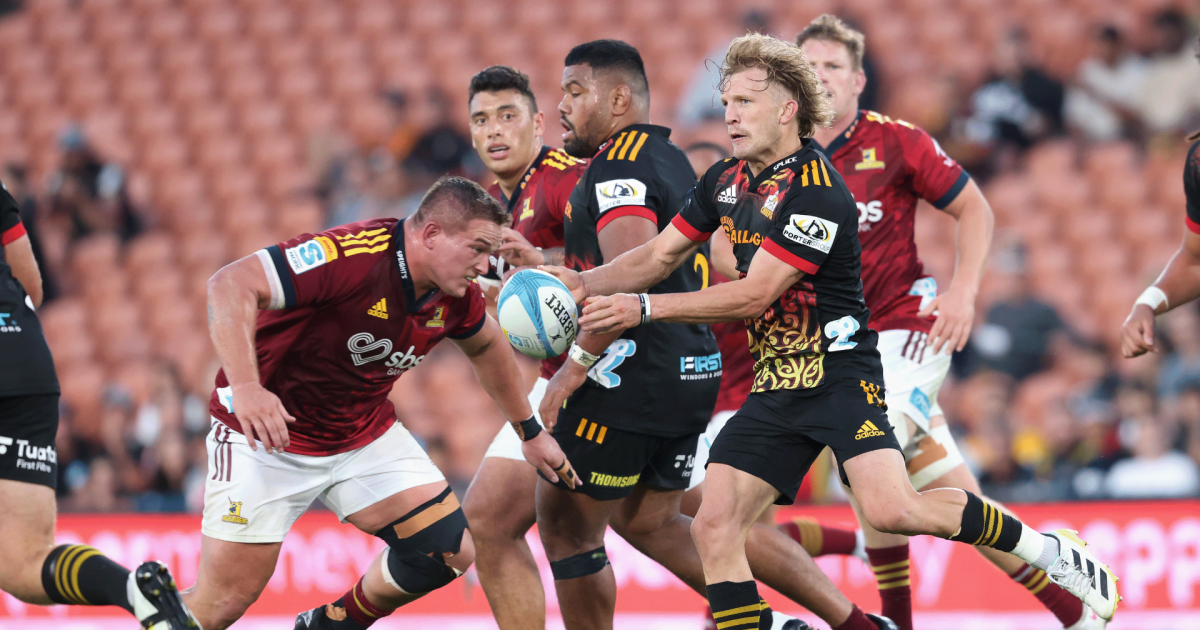Damian McKenzie stakes All Blacks claim as Chiefs beat Highlanders

Flyhalf Damian McKenzie sent another reminder of his ability to the All Blacks selectors as he guided the Chiefs to a 28-7 win over the Highlanders Friday and to a 3-0 start in Super Rugby Pacific.
McKenzie had a hand in all four of his team’s tries and produced several nice touches on attack and defence in a Chiefs team which didn’t always make good use of ample possession.
The Dunedin-based Highlanders now are 0-3 for the season but this was their best performance after a 60-20 loss to the Auckland-based Blues and 52-15 loss to the Christchurch-based Crusaders.
The Highlanders spent much of the first half inside their half but defended extremely well and trailed by only 8-0 at halftime.
Lapses of discipline which gave up a series of penalties and led to a sin-binning played into the Chiefs’ hands in the second half.
The Chiefs took advantage with three more tries including two to winger Shaun Stevenson, his fourth and fifth of the season.
The margin might have been larger but McKenzie was a bit wayward from the kicking tee, with only three goals from seven attempts.
“We came up against a Highlanders side that is pretty desperate,” Chiefs captain Sam Cane said.
“We knew their first two weeks weren’t a true reflection of where they are as a team.
“We expected a real battle and that’s exactly what we go. The first 50 minutes were a real arm wrestle. They defended well and forced us into mistakes. We didn’t quite get enough points on the board for the possession we had.”
McKenzie made his mark early.
As the Chiefs attacked on the open-side in the sixth minute, McKenzie spotted a numerical advantage on a wide blindside, changed the direction of the attack and sent Etene Nanai-Seturo over for the first try.
The Chiefs couldn’t score another try before halftime as the Highlanders continued to repel their attacks and exit well with the help of long kicks from former England flyhalf Freddie Burns, playing at fullback.
The next Chiefs try came in the 51st minute when McKenzie ran an elusive line and Rameka Poihipi handed off a brilliant ball to Stevenson who cut straight through a gap to score.
Five minutes later Alex Nankivell broke down the left flank and McKenzie was there to take his inside pass. When he was stopped Cane and Brad Weber carried the move on before Samipeni Finau scored.
Stevenson’s second came in the 75th minute, this time from McKenzie’s final pass. In between the Highlanders scored through Mosese Dawai.
McKenzie might again be looked at by the All Blacks selectors for a playmaker role with flyhalves Beauden Barrett and Richie Mo’unga both off to play in Japan after this year’s World Cup.









































































